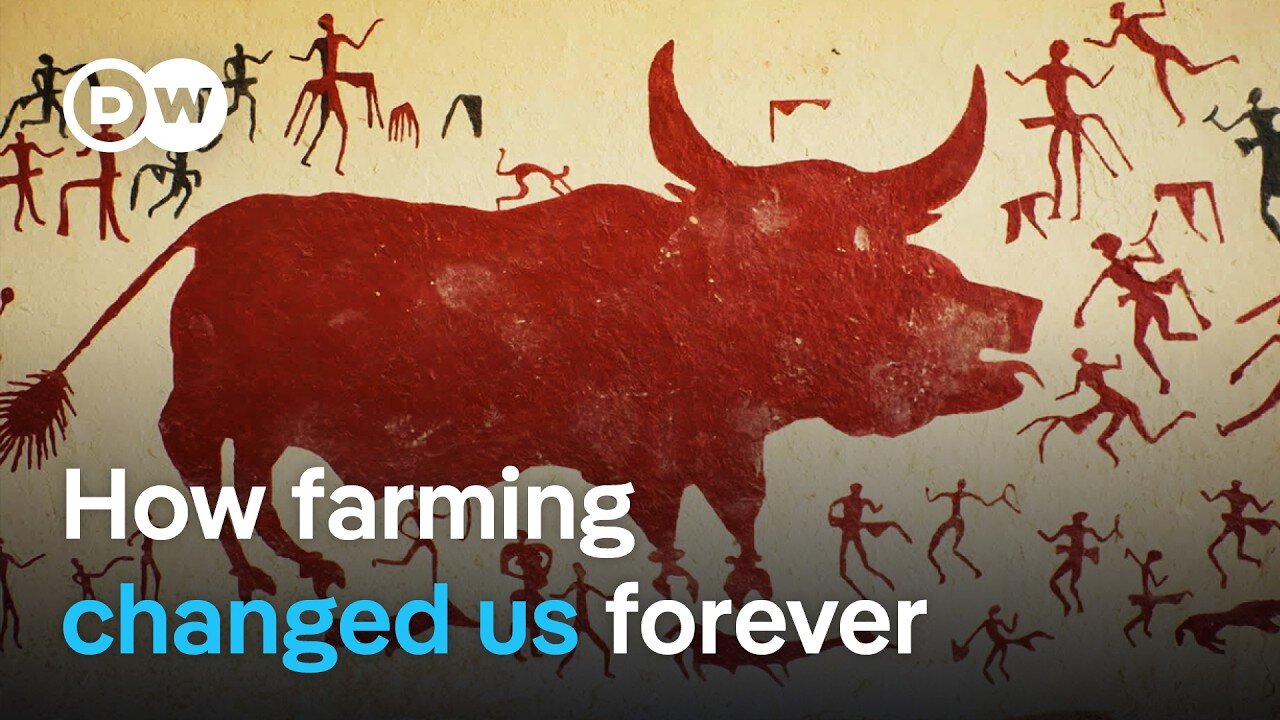Premium Only Content

From hunter-gatherers to farmers - How did humanity change in the Neolithic period? | DW Documentary
#archaeology #dwdocumentary #dwdocs
Our human ancestors fundamentally changed their eating behavior in the Neolithic period. This was when they began to cultivate cereals and domesticate wild animals. This change happened quickly and had a decisive impact on the evolutionary history of mankind.
Around 10,000 years ago, Neolithic man fundamentally changed his eating behavior with the switch to agriculture and animal husbandry. Prior to this, species such as Australopithecus, Homo erectus, Neanderthals and Homo sapiens lived for around 2.5 million years from hunting and gathering - from what nature provided. This Paleolithic period had a decisive influence on their evolution.
But within just a few thousand years, Homo sapiens secured a new food base by cultivating cereals and domesticating wild animals. This abrupt change had a profound impact on the anatomical, genetic and cognitive development of humans. Archaeological finds and new scientific methods over the past 15 years have provided new insights, revealing just how much Neolithic cuisine also impacted human evolution.
Why did man's ancestors abandon nomadic life and turn to agriculture? What did their new diet consist of? Why was this change initially harmful to humans? How did the human body adapt to agricultural products and overcome the limits of evolution in the process? How did knowledge of food preparation and preservation help them? And how have these changes shaped modern society?
In the second part of the documentary, researchers from various disciplines present the latest and most important findings on this topic.
-
 LIVE
LIVE
Russell Brand
1 hour agoBREAK BREAD EP. 15 - LECRAE
1,258 watching -
 1:37:26
1:37:26
The Officer Tatum
2 hours agoLIVE Rachel Maddow, Don Lemon MELTDOWN Over Joy Reid's FIRING! + More Ep 68
4.95K5 -
 UPCOMING
UPCOMING
The Gateway Pundit
17 minutes agoEpstein & JFK Files BLOCKED: Luna’s SHOCKING Clash with Pam Bondi! | Elijah Schaffer & Jim Hoft
-
 2:03:21
2:03:21
The Quartering
3 hours agoDan Crenshaw Hot Mic Threat, Jake Paul Endorses Vivek, and Kathleen Kennedy Leaves Lucasfilm
30.1K16 -
 LIVE
LIVE
Viss
5 hours ago🔴LIVE - Precision Guided & Strategic PUBG Tactics!
249 watching -
 1:06:58
1:06:58
The White House
3 hours agoPress Secretary Karoline Leavitt Briefs Members of the Media, Feb. 25, 2025
28.3K20 -
 1:34:46
1:34:46
Russell Brand
3 hours agoControl Slipping: Germany’s Vote, Ukraine, Apple, and Joy Reid – SF543
74K19 -
 57:44
57:44
Winston Marshall
3 hours ago“They Were Hiding THIS!” Michael Shellenberger UNCOVERS Dark Secret About USAID and The Deep State
25.8K14 -
 50:59
50:59
Michael Franzese
1 day agoAmerica’s Biggest Issues EXPOSED by Tomi Lahren
38.8K13 -
 2:55:16
2:55:16
The Dana Show with Dana Loesch
3 hours agoDOGE LAYOFFS FACE BACKLASH | The Dana Show LIVE On Rumble!
15.2K6